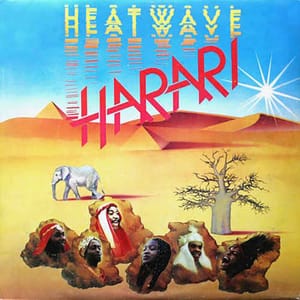Harari Party (1980)
It all started at a high school in Johannesburg’s township Soweto in 1968: Four students founded a band called The Beaters to play at fundraiser events (yes, that is 100% a Beatles reference). Little did these teenagers know that their music would become part of South Africa’s political history:
Their music, then of a rock-meets-jazz-impro-variety, soon became popular and moved far, far beyond fundraiser halls. In the mid-1970s, The Beaters traveled north to play their music in the neighboring country of Zimbabwe (then-Rhodesia), where the fight for independence was ongoing. The trip north lasted three months and changed the outlook of the band forever: On stage in the township of Harare, they played a song called “Harari” dedicated to the people living there. Shortly after The Beaters witnessed this struggle for independence abroad, the South African youth movement against Apartheid escalated in Soweto in 1976, and the shift in the band’s identity was sealed: Now re-named Harari, they presented their audiences with concert outfits and sound elements rooted in Black south African culture.
In the following years, Harari balanced the political aspects of their music encouraging Apartheid opposition with tracks that still earned them broad popularity. This worked out extremely well: They paved the way for more South African resistance music in the 1980s, and “Party”, a disco track of theirs with unmistakable southern African sound influences, even made it into the US Top 100.

Start the conversation
Become a paid member of The Rest to gain access to the comments section.